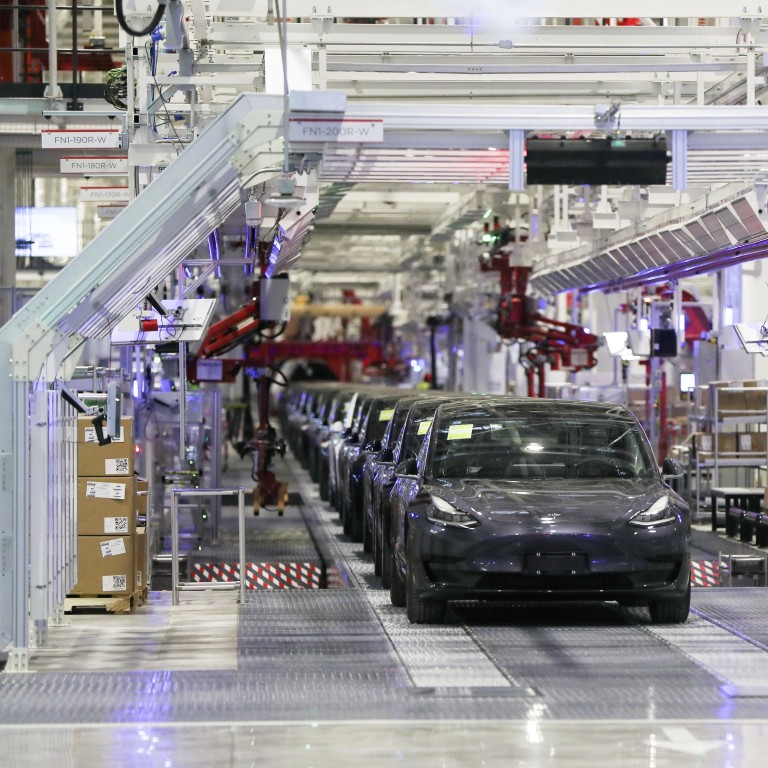
Tesla boss Elon Musk praises China’s carmakers and calls for concerted efforts to ensure data security after run-ins with regulators, customers
- Earlier this year, Tesla was forced to soothe tensions with officials and customers in China over concerns about the quality and safety of its cars
- The US giant recently built a data centre in Shanghai after Beijing pushed for data gathered by smart vehicles in the country to be stored locally
“I have a great deal of respect for the many Chinese carmakers,” he said. “Public sentiment and support for electric vehicles is at an [unprecedented] inflection point because they know it is the future.
“With the rapid growth of autonomous driving technologies, data security of vehicles is drawing more public concern than ever before.” It is not the responsibility of one single company, he added.
The billionaire said Chinese carmakers are particularly strong when it comes to the software needed to make vehicles smarter on their way to full autonomy. He stopped short of mentioning any vehicle manufacturers by name.
China is the world’s largest electric vehicle (EV) market, with Beijing striving for global dominance in the arena.
Swiss bank UBS predicted in March that three out of every five new cars on Chinese roads will be powered by electricity by 2030.
Leading Chinese EV start-ups such as Xpeng and NIO, technology companies like Baidu and Huawei, and conventional carmakers including Geely are battling against California-based Tesla for supremacy in autonomous driving to define the future of mobility.
The US electric carmaker is far and away the front runner in the mainland’s premium electric car segment, its Model 3 and Model Y vehicles assembled at the Gigafactory 3 in Shanghai having proved a hit with Chinese motorists.
In the first eight months of this year, Tesla delivered 152,531 vehicles on the mainland, more than 10 per cent of the country’s total, according to the China Passenger Car Association.
On July 1 when the Chinese Communist Party celebrated its 100th anniversary, Musk responded to a post marking the occasion on Twitter by state news agency Xinhua, saying that the economic prosperity Beijing had achieved was “truly amazing.”
In early April, the company faced a social media backlash from Chinese customers.
It arose from an incident in which a woman in a T-shirt emblazoned with the words “brake malfunction” and a Tesla logo jumped on top of a Tesla car being displayed at the Shanghai Auto Show, to blame the firm for a crash involving her Model 3.
Tesla recently built a data centre in Shanghai to handle data collected from its EVs after Beijing pushed for data gathered by smart vehicles in the country to be stored locally.
The move followed a Wall Street Journal report in March that Beijing had restricted the use of Tesla vehicles by military staff and employees of key state-owned companies because of security concerns. The company was found to be using cameras and ultrasonic sensors inside its cars, the report said.
Musk downplayed the concerns and dismissed speculation that its cars could be used for spying.

